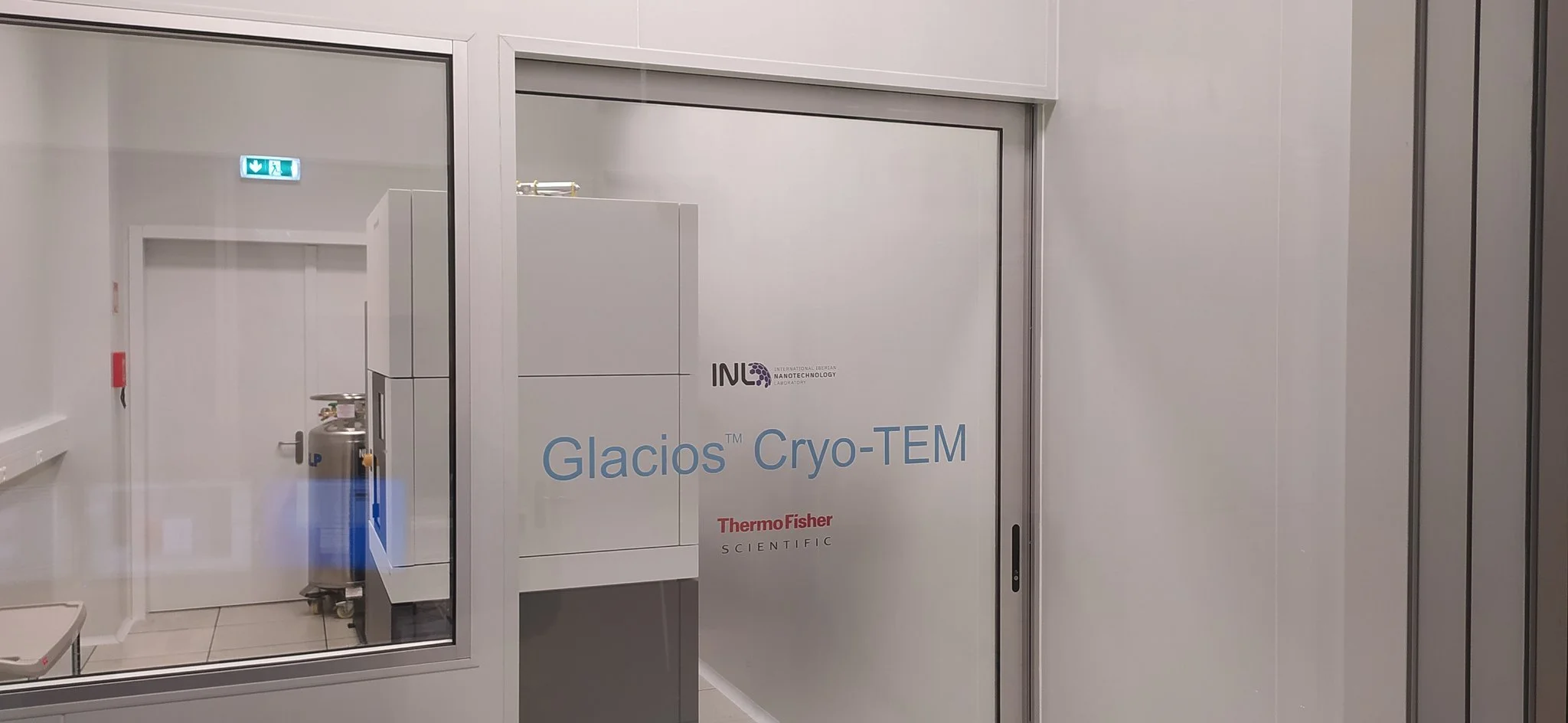
INL inaugurates state-of-the-art Cryo-Electron Microscope that helps to study new diseases
January 31, 2023
Analysing biostructures down to the atomic level can help to study diseases such as Alzheimer’s or cancer, as well as to develop new therapies. This new type of investigation is now possible from Braga, thanks to the new electronic cryogenic microscope installed at INL – International Iberian Nanotechnology Laboratory.
The acquisition of this equipment is part of the creation of the CryoEM-PT National Network, “an electron microscopy network for life and health sciences”, explains Paulo Ferreira, scientific coordinator of this initiative that opens doors to researchers and companies in Iberia, allowing easy access to state-of-the-art infrastructure and technologies.
The Cryo-Electron Microscopy is a state-of-the-art technique fundamental to structural biology and health research, allowing cells and their components to be observed with unprecedented precision. This type of microscope “uses electrons to look at materials”, which “allows reaching the atomic level”, explains Paulo Ferreira, while “the samples are cooled to the temperature of liquid nitrogen”. The latter is “the advantage of using these instruments”, details the project coordinator since the low temperature prevents “the electron beam from destroying the samples when it interacts with them”. In this sense, the technology it uses is useful for a wide variety of applications, such as “obtaining the three-dimensional structure of biomolecules and viruses such as SARS-CoV-2”, so that “we can develop more effective combat strategies”.
“This opens up a great opportunity to study many therapies and also diseases, for example, Alzheimer’s and Parkinson’s or cancer, as well as the development of new drugs”, which is why not only academic institutions are among the future users, but also companies dedicated to the drug development.
Furthermore, these microscopes are “very computationally demanding; servers with very high speeds and storage capacities are needed”, he explains, since the machine obtains thousands of images per second and in a few minutes generates “a large number of terabytes of data.
Regarding its operation, network users can choose to send the samples directly to the INL – International Iberian Nanotechnology Laboratory team, collaborate directly with its professionals or receive prior training so that they themselves can obtain and analyse the collected data. This technology was awarded the Nobel Prize in Chemistry in 2017 and Paulo Ferreira adds that this is “an instrument considered critical in health and life sciences around the world”.



